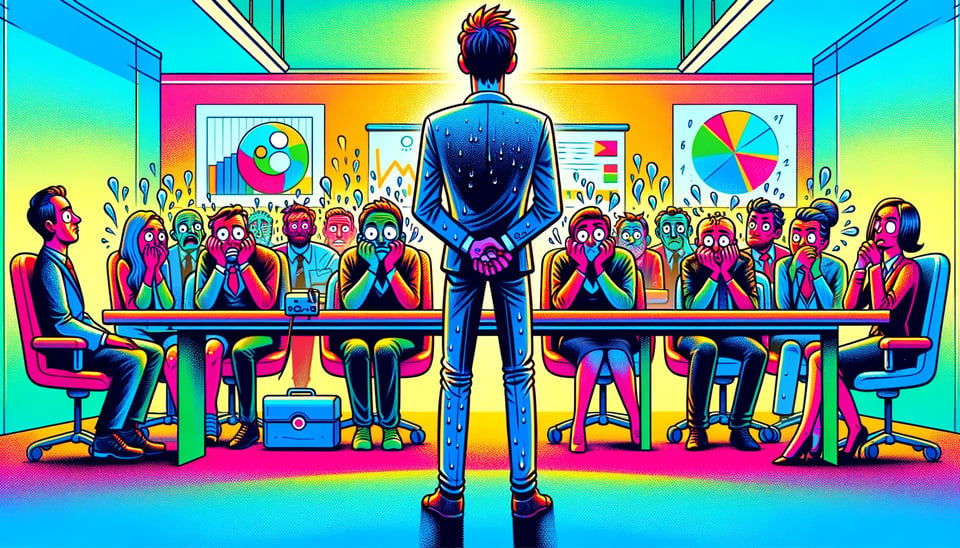02/28/24 10:11 am
Sometimes, people are wrong. Nobody likes to be wrong.
Wrongologist Kathryn Schulz gives a great TED Talk where she asks the audience what it feels like to be wrong. People toss out answers like embarrassing, dreadful, thumbs down. And, of course... they're wrong.
Those negative sensations are what it feels like to realize you're wrong. Actually being wrong feels exactly the same as being right — because we don't know we're wrong.

Sometimes, your customers, your coworkers, and your managers are wrong, too. Telling them so is no fun.
I have a client who's asking me to dive deep into their business. And frankly, this client has a great business: The C-suite is smart, their strategy is solid. The CEO is rightly proud of what they've built. But they also want to do even better.
In our working sessions, the CEO tells me about certain approaches they use, and how well they've worked, and how they get to the decision. And, to his great credit, he continually emphasizes that he's open to hearing if I think they're wrong. And he genuinely is!
But still... Telling people they messed up — or that the thing they're proud of, or the outcome they're expecting, or the plan they have is wrong — is hard.
The trick isn't to sugarcoat it; people who need to hear a thing, need to hear it. Don't mask it. It's frustrating when someone's trying to tell you something important — and potentially hard to hear — when you can't figure out what the heck they're trying to communicate.
The solution is to be direct about the decision points or steps that were wrong on the journey to landing at the wrong place. That's a mouthful.
Let me use an example to make this clearer. Jane is explaining to her C-Suite why the company missed goals. She doesn't need to say "CFO, you were wrong; we can't make 100 widgets a day."
Rather, I prefer an approach like: "We missed our goal because we thought our current machinery could scale to making 100 widgets a day." The person needn't be labeled wrong; the actual bad decision(s) are the wrong things.
This obviously doesn't eliminate people realizing they're wrong, and we know just how that feels. Here's another example of labeling the decision as wrong, not a person or team: "We thought automating the sales process would eliminate back-and-forths with customers. It did. But it also meant that we closed fewer deals because there were no humans to hear customer objections and adjust accordingly."
Joe who made that decision — and who likely knows that the whole meeting knows he's the one who made that decision — may well get defensive. I sometimes have to fight the instinct to sugarcoat myself. But if Joe gets defensive, the response is empathy — softening the blow isn't the same as sugarcoating: "It was reasonable to assume we could process more deals if we automated sales. What we now know is that it's easier for our buyers to walk away when they're dealing with a website than with a person."
Joe's not going to love this conversation no matter what, because Joe got it wrong. Our job is to rip the Band-Aid off, and then ideally be ready with the better treatment.